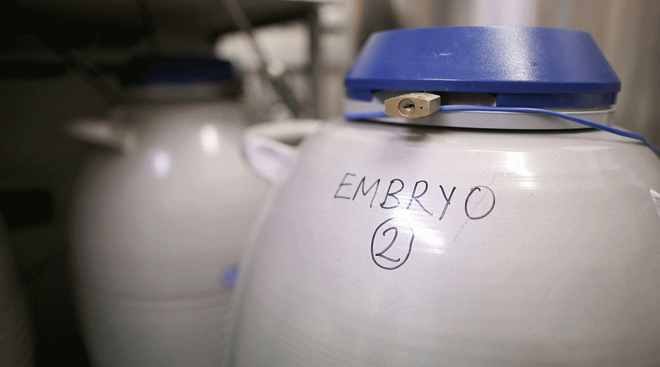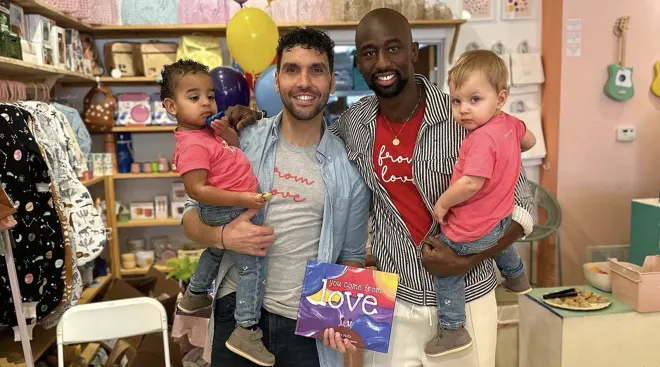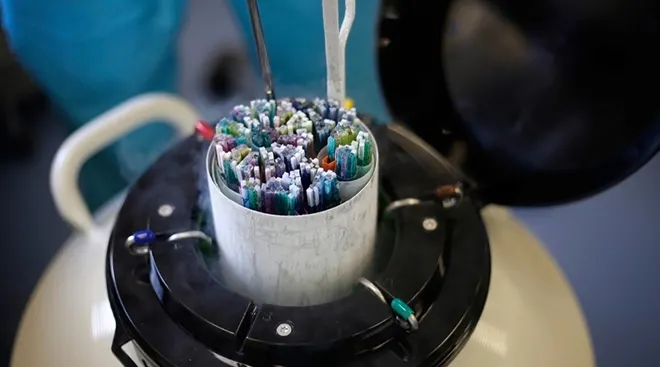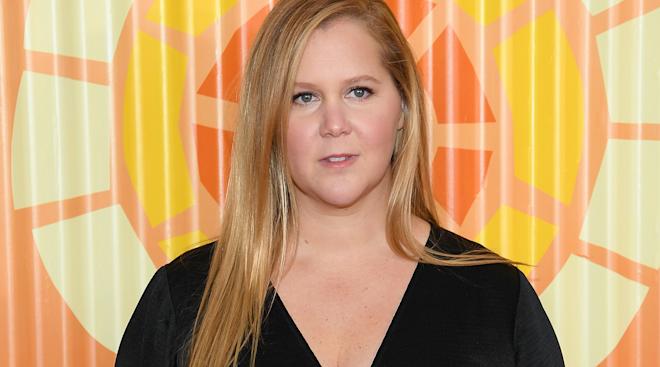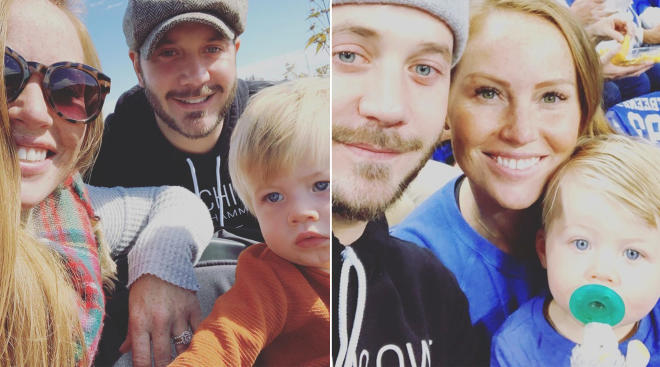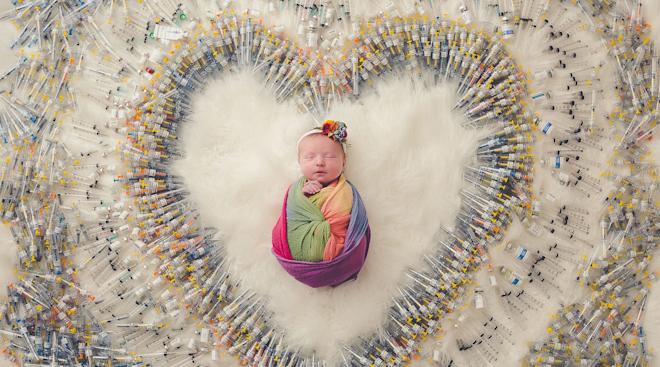IVF: What to Know About in Vitro Fertilization
These days there are so many possible paths to parenthood. If you and your fertility specialist decide that in vitro fertilization (IVF) is the right way for you to conceive, your IVF treatment plan will probably be as unique as you are. Still, it’s normal to have all the questions as you venture into this uncharted territory. Ready to explore your options? From initial steps to IVF success rate, side effects and cost factors, we’re sharing the full lowdown on what you can expect during the IVF process, straight from fertility specialists in the know.
IVF, or in vitro fertilization, is a series of procedures used to assist parents with the conception of a baby; an egg is fertilized by sperm outside the body and then transferred to a uterus for the duration of the pregnancy.
How does IVF work?
Women naturally produce one egg per cycle. But according to the Massachusetts General Hospital Fertility Center, 30 percent of human eggs aren’t usable. The IVF process, initially developed for women with tubal factor infertility, uses injectable medications to increase the number of eggs a woman’s body releases during one cycle. “With IVF, patients are using the same hormones the brain makes but at a higher concentration to bring ovaries to have multiple eggs,” says Stephanie Gustin, MD, a reproductive endocrinologist and owner of Heartland Center for Reproductive Medicine in Omaha.
Once the eggs are retrieved and then fertilized in a lab, they’re moved to a woman’s uterus. “Fourteen days later, our patients take a pregnancy test; if it’s positive, we repeat the test in two days to assess whether it’s a normal pregnancy,” says Molly Moravek, MD, an ob-gyn and associate professor at Michigan Medicine. One IVF cycle—which can be carried out with your own eggs and your partner’s sperm or donor sperm and/or donor eggs or embryos—takes anywhere from three weeks to a month or two.
IUI vs. IVF
There isn’t a one-size-fits-all approach to fertility treatments. And if your doctor has mentioned an IUI, you might be wondering how it differs from IVF, or which one is the right path to pursue first. It depends on the results of your fertility tests, but often the first step before IVF treatment will be intrauterine insemination (IUI), a procedure where sperm that have been collected and washed in a clinic are placed via catheter into your uterus around the time of ovulation.
If a couple has unexplained fertility or “mild male factor” infertility, IUI is considered favorable, says Shruthi Mahalingaiah, MD, a reproductive endocrinologist at the Massachusetts General Hospital Fertility Center. Women wanting to try a less invasive therapy are also likely to seek out IUI before attempting IVF treatment, Mahalingaiah notes, as are some prospective moms using donor sperm.
What is reciprocal IVF?
Reciprocal IVF, also known as co-maternity or co-IVF, allows same-sex female couples to both be involved physically in their pregnancy. One partner provides the eggs and the other carries the pregnancy, explains Abigail Mancuso, MD, an IVF specialist at the University of Iowa Center for Advanced Reproductive Care.
If you’re under 35 years old and you’ve been trying to get pregnant for 12 months, or if you’re older than 35 and you’ve been trying to conceive for six months, your OB may recommend that you see a fertility specialist, according to the American College of Obstetricians and Gynecologists (ACOG). They will order a fertility workup, or a series of blood tests and ultrasounds that examine your ovarian reserve, uterine shape, tubal shapes and hormone levels as well as your partner’s sperm. What happens next depends on the results of these tests and your pregnancy history, says Moravek. You’re generally considered a good candidate for IVF treatment if:
- Your fallopian tubes are blocked or damaged
- You’re over 40 years old and your fertility specialist can’t find anything obvious to fix in your screenings
- Your male partner has fertility issues, such as a low sperm count or very few normally shaped sperm
- You want to use reciprocal IVF to conceive a baby with your partner
- You’ve had IUIs, and they have not been successful
What to consider before pursuing IVF
Pursuing in vitro fertilization isn’t an easy decision. There are a number of things to talk over with your partner or family before you start the IVF process; these include cost, number of embryos to transfer and your feelings about potentially getting pregnant with more than one baby. Here are some things to consider:
- How many IVF cycles can I/we afford?
- Can we handle twins or multiple births?
- What will I/we do with extra embryos that aren’t transferred? Keep in mind that “partners have equal rights over embryos,” says Moravek. Regardless of your marriage or relationship status, your embryo is considered jointly parented, so it’s important to determine who will oversee them. What’s more, Moravek explains that, for some people, religious beliefs come into play: “Are you okay with donating embryos or discarding them?”
What’s more, there are a few important questions you’ll want to ask your doctor before you finalize your IVF plan. Here are some concerns to address in advance:
- What is the IVF success rate of patients in my age group at this fertility center/clinic?
- Does my insurance cover any part of the IVF treatment? Reach out to your carrier and ask specific questions to get a more thorough breakdown of cost and coverage.
- How many embryos should we transfer? (Most fertility specialists today recommend that, unless there’s a good chance of producing a genetically abnormal embryo, you stick with transferring one embryo at a time, says Moravek.)
Your IVF treatment plan depends on your health and pregnancy history, your finances and how many IVF cycles you want to try. Often, a typical IVF journey will start off with a few weeks on the birth control pill to make scheduling easier, according to the Massachusetts General Hospital Fertility Center. Then you’ll start fertility medications, mostly likely gonadotropins—hormone medications that stimulate your ovaries to produce eggs—that you’ll inject yourself with once or twice daily, notes Gustin. You’ll also be taking another shot to prevent yourself from prematurely ovulating. Throughout the 10 to 12 days that you’re on these IVF medications, you’ll have ultrasounds and bloodwork performed to check hormone levels, measure the thickness of your uterine lining and count the number of follicles developing inside you, says Gustin.
When your eggs are mature, you’ll use one last injection—the trigger shot, or hCG—which causes you to ovulate. Gustin says that about 34 to 36 hours later, before you ovulate, your fertility team will extract your eggs, which are then mixed with sperm in a lab before being implanted back into your uterus.
The 5 IVF steps
While every IVF treatment is slightly unique, there are five basic steps to the IVF process:
- Ovarian stimulation
- Egg retrieval
- Sperm collection
- Fertilization
- Embryo transfer
Your IVF timeline can range from weeks to years depending on how you look at it. It may include a number of different treatment options or steps, like starting with a few rounds of IUI before graduating to IVF, or using the birth control pill for a while to facilitate scheduling. A typical IVF cycle, from when you start injecting ovarian stimulation medications to when an embryo gets transferred to your uterus, takes roughly three to four weeks, says Mancuso.
Generally, patients are under some sort of IV anesthesia during IVF egg retrieval, says Mancuso. It’s an outpatient procedure that takes about 20 minutes. Your fertility team will use a transvaginal ultrasound with a little needle that goes into the ovary and sucks out the eggs, explains Moravek. Once the eggs have been collected and fertilized, they are biopsied and sent out for genetic testing, if that’s part of your IVF plan.
IVF embryo transfer occurs three to five days after retrieval if you’re not freezing your embryos to wait for testing or to use at a later time. “You’re awake for it,” says Moravek. “They put in a speculum like for a pap smear, clean off the cervix, insert a very small catheter into the uterus and release the embryos a centimeter or two from the uterus.” Then the waiting game begins: You’ll take your first blood pregnancy test two weeks later.
The Centers for Disease Control and Prevention (CDC) records assisted reproductive technology success rate data throughout the country. Its most recent report, which tracked 456 fertility clinics in the US, shows that 55.1 percent of procedures—the majority of which were IVF—where eggs were retrieved from and transferred to women ages 35 and under resulted in a live birth. For women ages 35 to 37, 41.9 percent of egg retrievals resulted in live births; for women ages 38 to 40, the IVF success rate was 26.6 percent and for those older than 43, 4.1 percent of egg retrievals resulted in live births.
You can blame most IVF side effects on the medications in charge of manipulating your ovaries: Potential headaches, hot flashes, mood swings and pain at the injection site are common with the stimulation medications. You may also experience stomach issues, headaches, vaginal bleeding and redness or itching at the injection site for the drugs that limit your ovulation.
“In general, patients are going to feel something when their hormone status shifts,” says Mahalingaiah. “Although some people say they don’t feel any side effects at all.”
As your follicles get bigger and your body makes more estrogen, you might notice some breast enlargement, and as your ovaries grow you may feel bloating or intermittent pressure or cramping in your pelvis, says Gustin.
IVF treatment can also have a mental impact. “Emotions are a huge part of this,” says Mahalingaiah. “They can significantly impact the experience of going through the treatment, and the first cycle is often the hardest one to go through because it’s so new.” The stakes are high and fluctuating hormones can add fuel to the fire, so be sure to treat yourself with grace and kindness throughout the rollercoaster IVF process, and don’t be shy about reaching out for help. Mahalingaiah notes that many fertility clinics employ social workers or will refer patients to someone for additional psychological support.
On average, one cycle of IVF treatment costs between $15,000 and $25,000, says Mancuso, although that’s akin to a base fee. “Everything else, like genetic testing or ICSI fertilization, adds on extra costs,” she says.
Is IVF covered by insurance?
If you’re wondering if IVF is covered by insurance, the answer is far from definitive. While US workplace insurance has, in recent years, offered more fertility treatment coverage, the National Conference of State Legislatures notes that only 17 states have passed laws that require insurers to either cover or offer coverage for infertility treatment—exactly how much, though, is neither universal nor clear.
Finances can definitely be a limiting factor when it comes to how your IVF journey advances. “There’s been an improvement in insurance coverage over the years, but it’s not where it needs to be yet,” says Mancuso.
Are IVF loans available?
The overwhelming expense of in vitro fertilization can be a hindrance for many hopeful parents. The slightly encouraging news is that IVF loans can sometimes help offset the initial out-of-pocket cost. Don’t know where to start? Your fertility specialist or clinic may partner with certain lenders that can potentially help you navigate financing options. (It’s best to do your due diligence and research IVF loans on your own as well.) What’s more, you might consider looking into IVF grants if you’re unable to afford the options presented.
In vitro fertilization can be a blessing for families. Still, the IVF process isn’t guaranteed, and it can be emotional, exhausting and expensive. Talk to your partner, your loved ones and your doctors to make sure you’re fully prepared, mentally and physically, before embarking on this journey.
About the experts:
Stephanie Gustin, MD, is a reproductive endocrinologist and owner of Heartland Center for Reproductive Medicine in Omaha. She received her medical degree from Georgetown University School of Medicine.
Shruthi Mahalingaiah, MD, is a reproductive endocrinologist at the Massachusetts General Hospital Fertility Center. She received her medical degree from Harvard Medical School.
Abigail Mancuso, MD, is an IVF physician at the University of Iowa Center for Advanced Reproductive Care. She received her medical degree from Creighton University, School of Medicine in Omaha, Nebraska.
Molly Moravek, MD, is an associate professor in the Department of Obstetrics and Gynecology at the University of Michigan Medical School, where she also earned her medical degree.
Please note: The Bump and the materials and information it contains are not intended to, and do not constitute, medical or other health advice or diagnosis and should not be used as such. You should always consult with a qualified physician or health professional about your specific circumstances.
Plus, more from The Bump:
Navigate forward to interact with the calendar and select a date. Press the question mark key to get the keyboard shortcuts for changing dates.

































